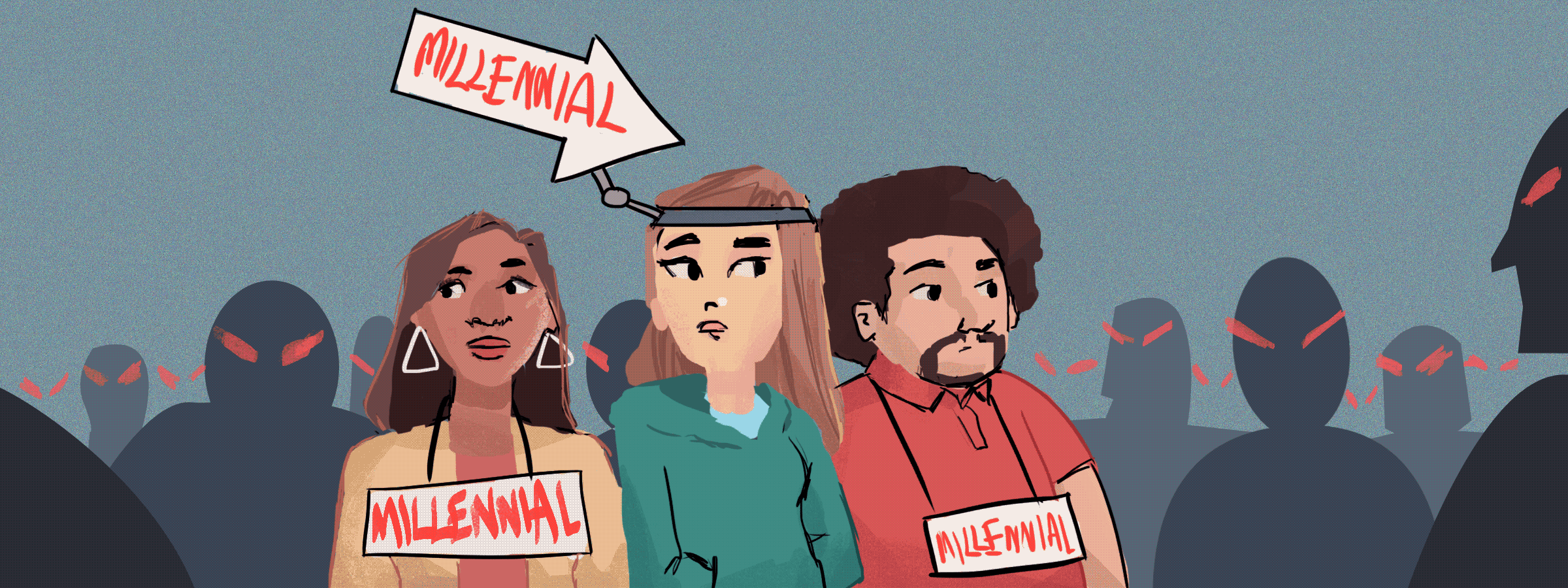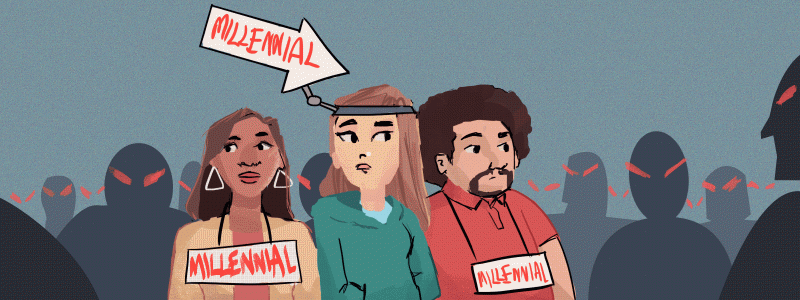Categorizing with ‘millennial’

I was born on March 1, 1993. I am 22-years old, soon to be joining the workplace, trying to find my spot while also bringing a “new perspective” into the office. Oh yeah. And I’m a millennial.

For some odd reason, any time I bring up my age, the word “millennial” always comes into play. I’m categorized immediately as a millennial instead of an individual. I am not a 22-year old. I am not Shelby Blackley. I am a millennial.
Why is this the case? What is our society’s obsession with “millennials” and this word that seems to coin such a large group?
Millennials, the special name for those born between the early 1980s — sometimes as far as 1977 — and 2000, are considered to be Generation Y. The “me” generation, where everything is about them. They are driven by their own pleasures and satisfactions, while success is imperative on who you know and what you do.
What a lovely group to be a part of.
But, apart from stereotypes, what else do we know about this cohort?
According to MillennialMarketing.com, a team founded in 2008 by a Notre Dame graduate, millennials make up 25 per cent of the population in the United States. This number is very comparable to Canada. Additionally, millennials make up 21 per cent of “consumer discretionary purchases,” which includes everything that is not an essential good or service.
Millennials, in general, obsess and obsess when things aren’t easy. They are stereotyped as lazy, self-absorbed and sometimes too reliant on technology instead of person-to-person communication.
But this group does have a lot of problems to go through — I have seen friends go through struggle after struggle because of underemployment, unpaid internships, temporary contracts, a changing economy and I know there will be struggles when I walk away into the “real” world.
But I’ve accepted this fate. I know the economy changes, I know there are members of the boomer generation holding on to their employment with every fibre of their being and will not let go until they absolutely have to. That’s how they were brought up. Admittedly, that’s how I was brought up. You work. You stay humble. You don’t expect anything, but you appreciate it all.
I owe a lot of my opposite-to-millennial traits to my parents. Instant gratification didn’t occur. They were no doubt proud of me, but I didn’t get a dollar every time I scored a goal or a treat every time I got an A. I was taught young I will be working more than just a 9 to 5 job — I often get asked why I don’t take time for myself, but instead overwork. It’s because that’s how I was raised and I am proud of that.
But there’s also this misconceived stereotype from people that millennials don’t know how to work hard, or that companies need to adapt to deal with how millennials absorb information. They expect things to come to them. They use their contacts to get where they need to be. They thrive off new technology and if it doesn’t work for them, the effort is null.
As a result of this misconception, my millennial counterparts are often so absorbed with being called millennials that this stereotype is becoming true. Millennials are reinforcing the negative stereotypes by trying to fight them the very way the market is advertising them. Don’t like dating? There’s Tinder for you. You can’t find a job? Don’t worry, your mom has that great connection at their company. Trying to find the best way to communicate? Don’t walk up to someone, that’s old fashioned.
And the irony of this piece is as a millennial I am falling into the millennial stereotype of complaining about millennials. My head hurts from this.
I don’t want to be defined by the “struggles of my generation.” I don’t want to think my success is only temporary because I am “lucky” or that there are plenty of catalysts making it hard to achieve greatness as a millennial. I don’t want to suffer from impostor syndrome when I undoubtedly work hard and achieve my goals, but assume it is because people are mistaking me for something I’m not. I don’t want to doubt my abilities because being a millennial makes me lazy, incompetent and reliant on others to create my path.
I want to work hard. I want to be acknowledged for my hard work from those in my industry that know how hard it can be, but also appreciate humble individuals who have an open mind.
I don’t want to be acknowledged as a millennial and I don’t want it used as a piece of my identity. Yes, I am part of this cohort, but this cohort does not define me. I am Shelby Blackley. I am an individual finding my place in a changing world. Just like every other person.


